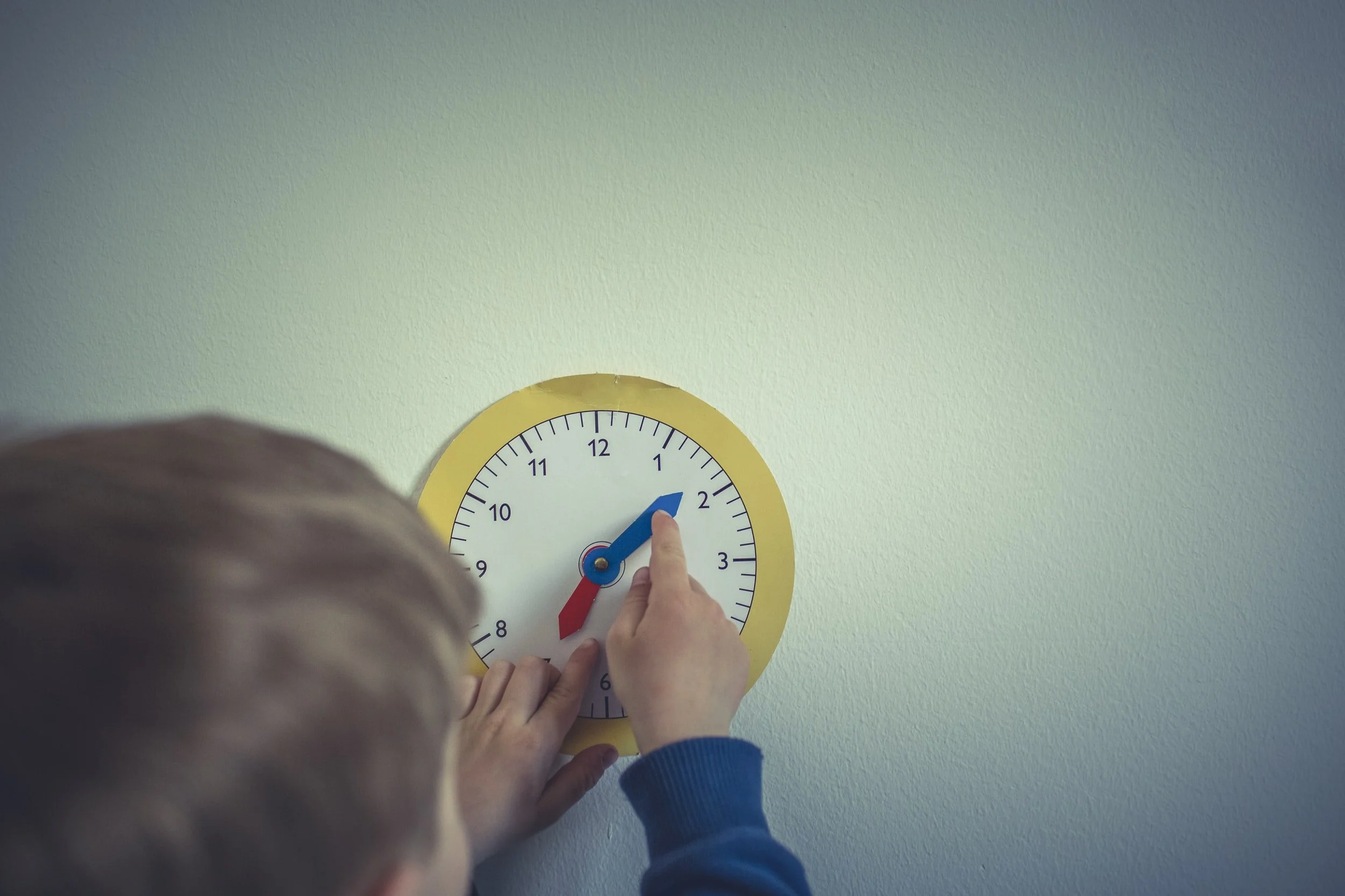It’s bedtime, and your child’s goodnight routine is a little longer than usual. Over the past few weeks, it seems like things have gotten a little more elaborate, and the steps have to be done just right. Or, maybe you’ve noticed your child repeatdly asking if things are okay—even when they know the answer is yes.
You know kids can have quirky habits sometimes, and your child has always been prone to worrying. Is this just a passing phase, or could your child possibly have mild OCD? Is “mild OCD” even a thing?
When we see OCD portrayed on TV, it’s often easy to spot. Characters with OCD usually have easily noticeable symptoms, and they’re often pretty severe. In real life, OCD is much better at hiding: symptoms can be really subtle. What’s more, kids with OCD sometimes feel they need to hide their compulsive behavior. Children are often aware that not everybody has these “weird” thoughts and urges, and so they try not to advertise what’s going on.
The short answer is: yes, it’s very possible to have mild OCD. For the longer answer, keep reading! We’ll take a look at the different, sneaky ways that OCD can show up for kids.
First, Let’s Clarify What OCD Is
If your child’s problems are mild, it might be harder to distinguish whether or not OCD is really what you’re dealing with. Anxiety and OCD have a lot in common. And some personality traits and quirks can resemble OCD too, like perfectionism, superstitiousness, and orderliness.
People with OCD share 2 big symptoms in common:
They have recurring unwanted thoughts, urges, or mental images. These are unwanted, tough to control, and cause the person anxiety or distress.
The person tries to push away or “neutralize” these thoughts, usually with some kind of special thought or action.
That’s where we get the name “Obsessive Compulsive Disorder” from. The unwanted thought that shows up again and again is the obsession. The thing a person feels they have to do in order to make the uncomfortable thought go away is the compulsion. The trick is that, while compulsions make a person feel better in the short term, they actually make the thoughts and anxiety worse over time.
A child who holds herself to a high standard at school, prefers a clean room, or likes to carry a lucky charm on important days is unlikely to have OCD. However, a child whose worries seem to be stuck in a loop, or who repeatedly performs the same action might be showing OCD symptoms.
OCD Has a Range of Severities
Just like most other mental health problems, OCD can be mild, moderate, or severe. Some children might experience OCD as a minor inconvenience, while for others it can be completely debilitating. The media tends to show mental illness in its most severe forms because that’s what’s most dramatic and interesting. However, this isn’t the reality for all kids with OCD.
Many kids are able to fly under the radar for a while, without their symptoms being apparent to others. Even parents may not notice anything unusual, especially at first. By the time a child comes to treatment, they may have had OCD symptoms for quite a while.
Therapists look at a few areas to see if a child’s symptoms are mild, moderate, or severe:
Frequency: A child whose worry shows up once a day may be on the midler end of the OCD spectrum. A child whose thought pops up many times throughout the day may have more severe OCD.
Intensity: If a child can sometimes brush off the thought or it causes only mild anxiety, their symptoms are more mild. If a child can’t let go of a thought and it causes extreme stress, that’s severe.
Duration: Kids with mild OCD symptoms may spend a few minutes a day doing something compulsively. Children struggling with severe OCD may spend hours.
Functioning: Mild OCD may not really get in the way of things like school, friendships, or other everyday activities. On the other hand, severe OCD can affect relationships and keep kids from doing the things they want or need to do.
If you take your child to a therapist, they can use a special assessment to confirm an OCD diagnosis, and to see if your child’s symptoms fall into the mild, moderate, or severe range. This can be helpful to know because therapy recommendations will be different depending on where your child falls in that range.
You May Have Caught Your Child’s Symptoms Early
If you are noticing mild OCD symptoms in your child, it’s possible you’ve caught your child’s condition pretty early, while it’s still developing. As worrying as it can be to learn that a child is having these kinds of problems, discovering them early is great news.
Even though OCD is common, it can be hard to catch: one study found that it took the average OCD patient over 12 years to get a correct diagnosis! Younger people in the study had an easier time than older people when it came to getting diagnosed, but this is still a pretty long time to wait for the right help.
Research also tell us that kids who participate OCD therapy early often have better results than adults do. OCD symptoms tend to start in childhood or adolescence, so kids who are in therapy generally haven’t lived with their symptoms for as long as adults have. Quick treatment seems to make a difference: on average, they had more improvement in their symptoms than the adults in the study.
One final reason that it’s great to catch OCD symptoms early: mild OCD doesn’t always stay mild. When left untreated, kids may develop more complex and time-consuming rituals, and have more frequent and severe worries. As OCD grows, it can have more and more of an impact on a child’s quality of life. Kids who start therapy when their OCD is still mild can avoid a lot of this difficulty, and get their lives back on track sooner.
Sometimes, OCD Symptoms Are Invisible
There may be more to your child’s OCD than meets the eye. OCD involves obsessinos and compulsions that aren’t always easy to see. When we imagine a child performing OCD rituals, we might think of physical actions like handwashing or flipping light switches repeatedly. However, kids can have mental rituals as well, that don’t involve physically doing anything. Some examples are:
Thinking a special word or thought in order to “undo” their worry.
Praying compulsively
Making mental lists
Counting in their head
Reviewing certain events over and over to double check them
Other times, compulsions involve saying something rather than doing something. These can also be a little more difficult to notice, at first. Pay attention for behaviors like:
Asking for reassurance over and over
Saying “I love you,” “I’m sorry”, or another phrase excessively
Repeated confessions about things the child fears they have done wrong, such as having a bad thought, or possibly saying something unkind to someone
When parents begin to take stock of compulsions like these, what initially looked like mild OCD may look more complicated. There can be a lot happening beneath the surface, and these kinds of mental thoughts and rituals can be difficult for kids to talk about, or even put into words.
Do Kids with Mild OCD Still Need Therapy?
Even if your child’s symptoms seem mild, it’s a good idea to consult with a therapist to see if counseling could help. A therapist who specializes in OCD can complete a full assessment to see if any sneaky symptoms are going unnoticed. They can teach you and your child skills to deal with OCD worries without giving in to them all the time. Sometimes, it can be reassuring for a child just to hear from an adult who isn’t their parent that OCD worries are common, harmless, and not a sign of “going crazy.”
Occasionally, OCD symptoms may resolve on their own without therapy. Often, however, therapy is needed in order to overcome them. We know that mild symptoms tend to grow worse over time, and that younger kids do better in OCD therapy than adults. Because of all this, it’s worth talking to a counselor and considering therapy, even if your child’s symptoms aren’t getting in the way of life too much right now.
There are some great self-help resources out there for children with OCD. My favorite book for kids, What to Do When Your Brain Gets Stuck, is a great place to start. Up and Down The Worry Hill is another popular option. These books can give your family some helpful background information on OCD and how it works. You’ll also find tools you can use to take action right away.
How Can I Help My Child With Mild OCD?
There’s a lot you can do as a parent to help your child with OCD. In fact, parents are an important part of OCD therapy. A child’s symptoms tend to affect the whole family. Whether you’re waiting around for a child to complete a ritual or answering a question for the 100th time, parents ofen notice that they are changing the way they do things in order to keep the peace at home.
Unfortunately, OCD is never satisfied with what you give it. The more you give in to OCD, the bigger it grows. That’s why mild OCD often morphs over time into more moderate or severe illness.
OCD therapy helps both kids and parents to break this cycle. Using a form of therapy called Exposure and Response Prevention, a therapist can help your family learn new ways to stand up to OCD without giving in to compulsions and rituals. Kids can learn that they don’t have to listen to the thoughts and worries OCD gives them. Parents can learn how to support children without giving in to OCD’s demands.
If you’re noticing mild symptoms of OCD in your child, you can help right away by letting your child know that OCD thoughts are just random noise. The thoughts don’t mean anything, can’t hurt anyone, and everybody—even non-OCD sufferers—gets weird thoughts sometimes.
If you’re looking for help to deal with thoughts and worries right now, my free coping skills guide might help. You can download 5 Coping Skills for Anxious Tweens (That Aren’t Just Deep Breathing) right now, wherever you are.
If you’re hoping to begin therapy for OCD and you live in the states of North Carolina, New York, or FLorida, I may be able to help! I’m certified in Exposure and Response Prevention, the therapy that’s been proven most effective for OCD. As someone with a childhood OCD diagnosis, I remember how scary and overwhelming these symptoms can be. And I know that ERP therapy can really make a difference in the lives of children, whether their symptoms are mild or not.
You can learn more about ERP here, or contact me to inquire about starting therapy.





